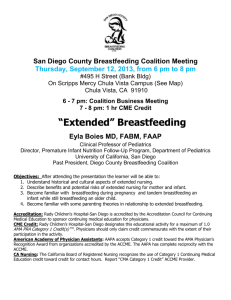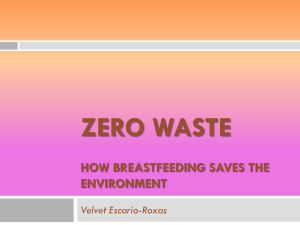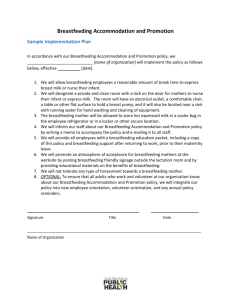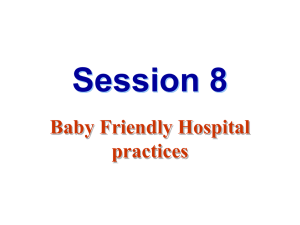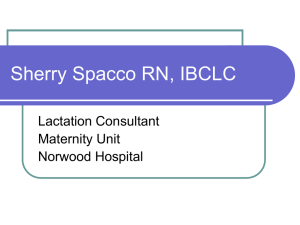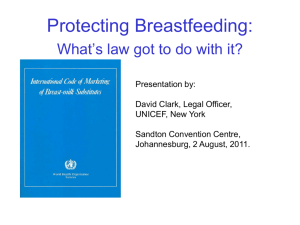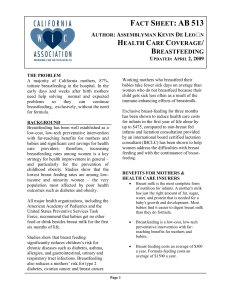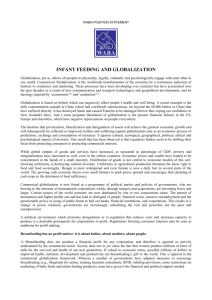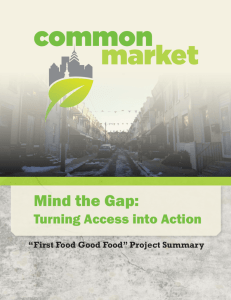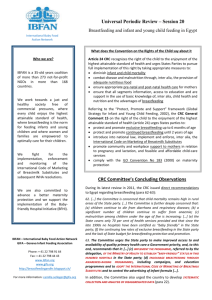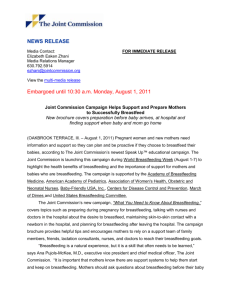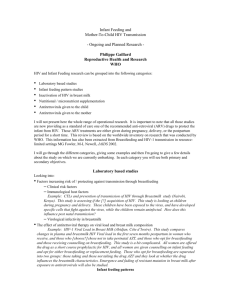concern_briefing_note_on_breastfeeding_9april2015_2
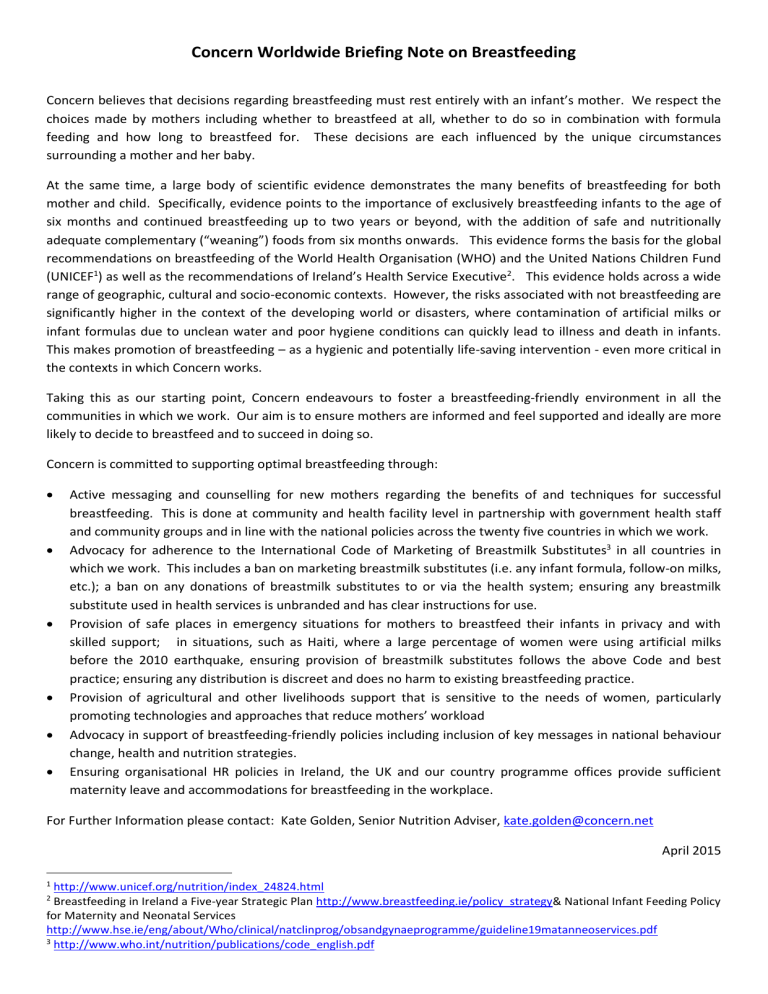
Concern Worldwide Briefing Note on Breastfeeding
Concern believes that decisions regarding breastfeeding must rest entirely with an infant’s mother. We respect the choices made by mothers including whether to breastfeed at all, whether to do so in combination with formula feeding and how long to breastfeed for. These decisions are each influenced by the unique circumstances surrounding a mother and her baby.
At the same time, a large body of scientific evidence demonstrates the many benefits of breastfeeding for both mother and child. Specifically, evidence points to the importance of exclusively breastfeeding infants to the age of six months and continued breastfeeding up to two years or beyond, with the addition of safe and nutritionally adequate complementary (“weaning”) foods from six months onwards. This evidence forms the basis for the global recommendations on breastfeeding of the World Health Organisation (WHO) and the United Nations Children Fund
(UNICEF 1 ) as well as the recommendations of Ireland’s Health Service Executive 2 . This evidence holds across a wide range of geographic, cultural and socio-economic contexts. However, the risks associated with not breastfeeding are significantly higher in the context of the developing world or disasters, where contamination of artificial milks or infant formulas due to unclean water and poor hygiene conditions can quickly lead to illness and death in infants.
This makes promotion of breastfeeding – as a hygienic and potentially life-saving intervention - even more critical in the contexts in which Concern works.
Taking this as our starting point, Concern endeavours to foster a breastfeeding-friendly environment in all the communities in which we work. Our aim is to ensure mothers are informed and feel supported and ideally are more likely to decide to breastfeed and to succeed in doing so.
Concern is committed to supporting optimal breastfeeding through:
Active messaging and counselling for new mothers regarding the benefits of and techniques for successful breastfeeding. This is done at community and health facility level in partnership with government health staff and community groups and in line with the national policies across the twenty five countries in which we work.
Advocacy for adherence to the International Code of Marketing of Breastmilk Substitutes 3 in all countries in which we work. This includes a ban on marketing breastmilk substitutes (i.e. any infant formula, follow-on milks, etc.); a ban on any donations of breastmilk substitutes to or via the health system; ensuring any breastmilk substitute used in health services is unbranded and has clear instructions for use.
Provision of safe places in emergency situations for mothers to breastfeed their infants in privacy and with skilled support; in situations, such as Haiti, where a large percentage of women were using artificial milks before the 2010 earthquake, ensuring provision of breastmilk substitutes follows the above Code and best practice; ensuring any distribution is discreet and does no harm to existing breastfeeding practice.
Provision of agricultural and other livelihoods support that is sensitive to the needs of women, particularly promoting technologies and approaches that reduce mothers’ workload
Advocacy in support of breastfeeding-friendly policies including inclusion of key messages in national behaviour change, health and nutrition strategies.
Ensuring organisational HR policies in Ireland, the UK and our country programme offices provide sufficient maternity leave and accommodations for breastfeeding in the workplace.
For Further Information please contact: Kate Golden, Senior Nutrition Adviser, kate.golden@concern.net
April 2015
1 http://www.unicef.org/nutrition/index_24824.html
2 Breastfeeding in Ireland a Five-year Strategic Plan http://www.breastfeeding.ie/policy_strategy & National Infant Feeding Policy for Maternity and Neonatal Services http://www.hse.ie/eng/about/Who/clinical/natclinprog/obsandgynaeprogramme/guideline19matanneoservices.pdf
3 http://www.who.int/nutrition/publications/code_english.pdf
